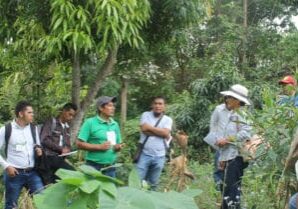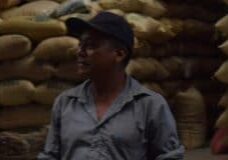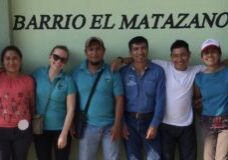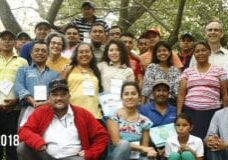The Coffee Diversification Project
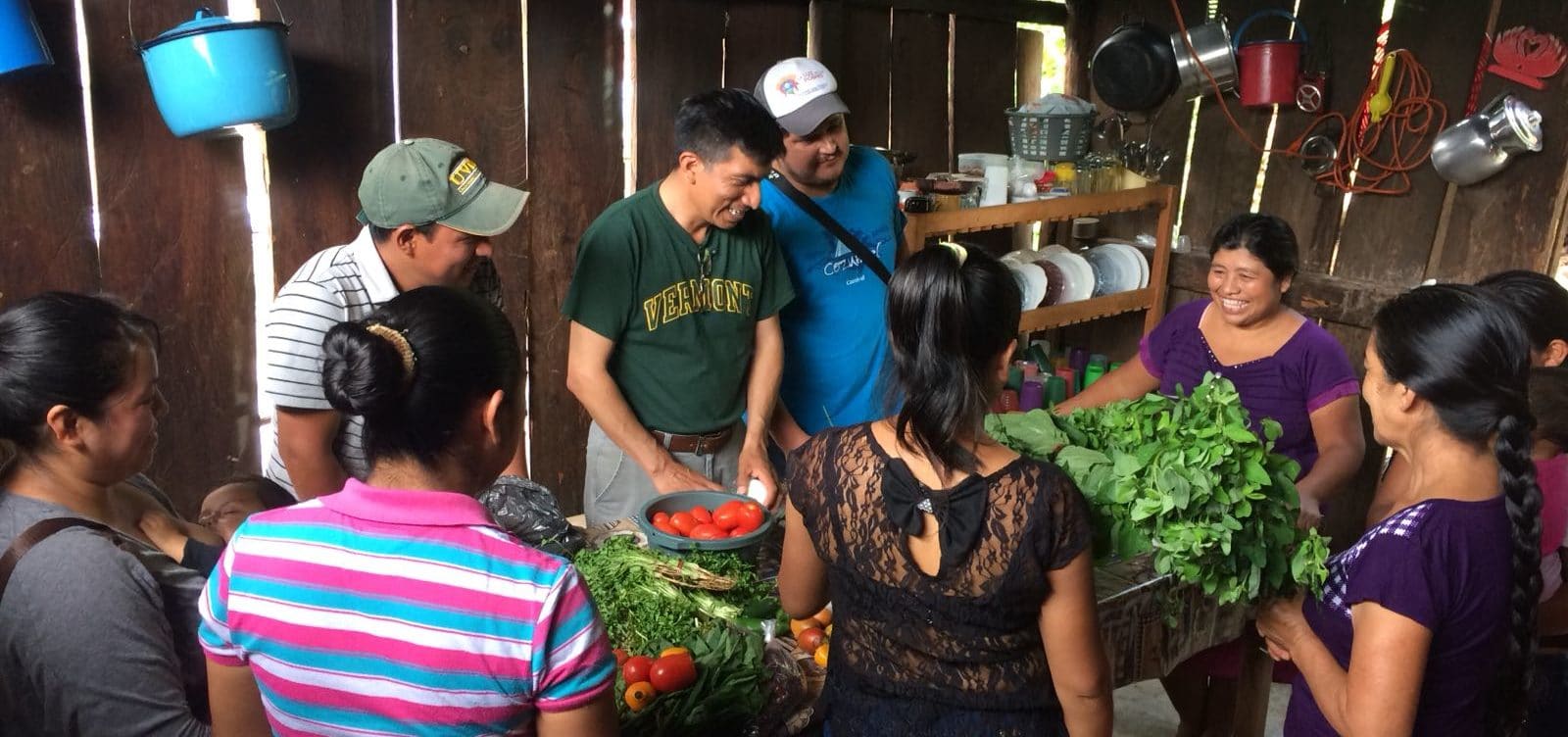
HOST ORGANIZATIONS
Community Agroecology Network (CAN)
LOCATION
Chiapas, Mexico
AMOUNT
$2,500.00
ABOUT THIS TRAINING
Diversifying coffee farming is crucial for a thriving coffee industry and the well-being of small producers. In coffee farming, diversification refers to introducing new products to the farm so that coffee isn't the farmer's sole source of income. Yet there's still a lot of research that needs to be done.
The Community Agroececoloy Network's Coffee Diversification Project brings together farmers, farmers' cooperatives and researchers to learn together about what diversification activities work and why, in a farmer knowledge exchange. This project forefronts two coffee cooperatives, CESMACH& PRODECOOP, leaders in organizing to develop direct relationships with specialty coffee buyers that pay better prices, promoting practices that create alternative income streams, elevate women's work, build climate resilience and conserve biodiversity.
After nearly 3 years of data collection and capacity-building about agroecological diversification activities, the Coffee Diversification Project seeks support to bring together farmers and cooperative leaders from Mexico and Nicaragua to visit each other's coffee farms and discuss turning knowledge into action! In November 2018, Grow Ahead and its supporters made it possible for Mexican farmers, cooperative leaders and researchers to travel to Nicaragua. During this 1st Farmer-to-Farmer Exchange, participants met to analyze participation in the action research process, discuss cooperative gender policy and visit the coffee farms of farmer-experimenters implementing diversification activities in coffee forests, milpas (parcels of corn and beans) and home gardens. The 2nd Farmer-to-Farmer Exchange in Chiapas, Mexico, will bring Nicaraguans to Mexico to analyze 3 years of research results together, learn about integrating honey bees into coffee forests and develop tools for cooperatives and coffee farmers to guide decision-making about diversification activities.
Learn More
Host Organizations
Community Agroecology Network (CAN)
Community Agroecology Network (CAN) is an international organization actively working in eight regions of Mexico and Central America. They confront social, economic, and environmental injustice through research, education, and action. CAN partners with community-based organizations, farmers’ cooperatives, nonprofits, and universities to generate local approaches to sustainable development. Their programs promote: agroecological farming practices that produce healthy food and healthy environments, food security to end seasonal hunger, alternative trade models that foster direct relationships between producers and consumers ensuring a fair price for farmers, and youth empowerment so that the next generation has the knowledge, skills, and opportunity to reduce hunger
The Promoter of Cooperatives in the Segovias-La Central de Cooperativas de Servicios Múltiples (PRODECOOP)
PRODECOOP is a second level cooperative with 38 affiliated primary cooperatives representing 2300 members, and about 10,000 people. These affiliated smallholders include more than 1,000 certified organic producers. Founded in 1992 following the Nicaraguan Civil War, PRODECOOP’s female membership has recently expanded to about 35%. The organization offers affiliated farmers and co-ops services, including coffee marketing, certification inspections, technical assistance, capacity building, a gender equity program (eg. Microlans and anti-domestic violence training), credit, quality improvement, and other social development projects. PRODECOOP farmers created seven seedbanks now operating and helping seed production, especially corn and beans, mitigating the impacts of harvest loss and responding to the farmers’ seed demand with efficiency and availability of quality seed to guarantee quality heirloom seed at all times.
Campesinos Ecológicos de la Sierra Madres de Chiapas (CESMACH)
CESMACH is base level coffee cooperative in the southern highlands of Chiapas, Mexico, representing 600 smallholder farmers and their families CESMACH farmers are located adjacent to El Triunfo biosphere reserve, and their organic forms of agriculture are a part of the buffer zone strategy in the region. For thousands living in this area, coffee is the principal agricultural activity and their only source of income. While farmers implement, experiment, and strengthening their own agroecology strategies, they continue to monitor an integrative approach to yields and ecology. Aware of the production and ecological duality, farmers organized to create CESMACH, a coop that beyond producing a quality cup, now produces honey and Café Femenino, a women led project diversifying production participation and cooperative leadership among women.
